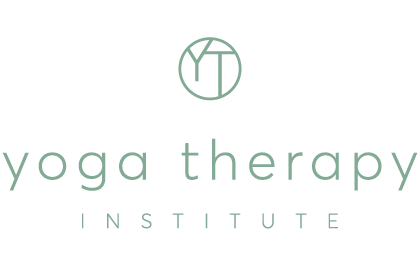Yoga Therapy Institute
Intellectual disability is a term commonly used to describe somebody who learns and develops more slowly than what is considered normal. Having an intellectual disability doesn’t mean a person can’t learn, but they may be slow to understand, slow to respond and get distracted very quickly and easily. People with intellectual disabilities may also have accompanying physical difficulties such as poor motor integration so they may be less uncoordinated, or have vision or speech impairment or even orthopedic conditions.
The benefits of Yoga for people with an intellectual disability
But can people with intellectual disability benefit from yoga? One study explored the use of a 20 minute yoga practice that provided a mental and physical break during a 90 minute block of academic instructions. The study found that students who tended to be easily distracted and lacked motivation were observed to experience a positive change in their behavior with the yoga intervention. They showed an increase in on-task behaviours, caused fewer disruptions in class and appeared to enjoy the learning process more than before the yoga practice intervention. (1)
Another study showed the efficacy of yoga as an effective therapeutic tool in the management of intellectually disabled children. This study found highly significant improvements in the IQ and social adaptation parameters of the yoga group compared to the control group. (2)
For Yoga Therapists
For Yoga Therapists interested in specialising in this field it may help to be very clear about your own definition of yoga and your intentions – what are you teaching and why? These questions should form the foundation of your work, and keep you aligned with teaching what is right for your client/students.
It also helps to be able to use your imagination to develop practices that are readily accessible for those with an intellectual disability:
- Most asana postures can be modified or even done in chairs. Simple joint mobiliisation, basic co-ordination and balance skills or even hasta mudras can replace many of the more familiar poses
- In pranayama focusing on the ability to just breathe in and out through the nose can be useful as mouth breathing is commonly seen in people with intellectual disability. You can find natural body positions such as ‘crocodile pose’ which automatically encourages diaphragmatic breathing over chest breathing, and using sound to elongate the out breath is fun and may be easier than the more commonly used counting methods
- Increasing focusing skills may be useful for people who are easily distracted and some very simple vinyasa sequences may be appropriate
- Chanting can be an enjoyable practice and using sounds like the Bija Mantras may be easier for people than remembering sequences of words.
Working with people with an Intellectual disability
Working with people with disabilities can be a wonderfully rewarding area for specialisation for Yoga Therapists/Teachers, and you may well learn more from your students/clients than they learn from you, particularly in the area of ‘practicing without expectations’. Striving and effort are often hallmarks of yoga practitioners. No matter how much you try and guide your students or even yourself into a different direction, competitiveness and attainment are difficult to control. People with an intellectual disability often have no such issues – there is often no sense that their experience has to be anything other than what it is. They may also be more in touch with their intuitive mind and their sense of feel with no intellectualising or judgement.
References
- Rommel TA, Anderson CJ; Benefits of Yoga as an Intervention for those with Intellectual Disabilities; Therapeutic Recreation Journal, 2013, 3rd Quarter, Vol 47, Issue 3, p 212
- Uma K, Nagendra H, Nagarathna R, Vaidehi S and Seethalakshmi R; The integrated approach of yoga: a therapeutic tool for mentally retarded children: a one-year controlled study; Journal of Intellectual Disability Research, Vol 33, Issue 5, pages 415-421, October 1989
